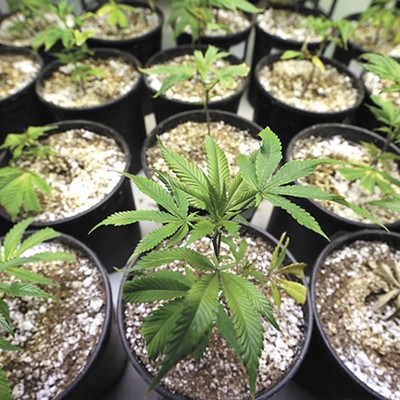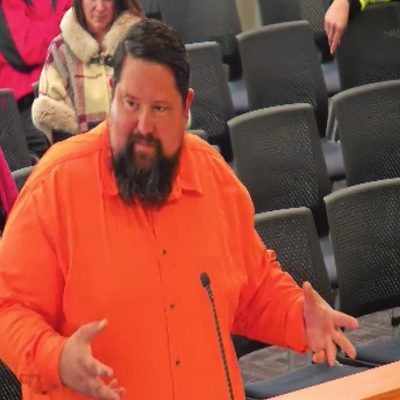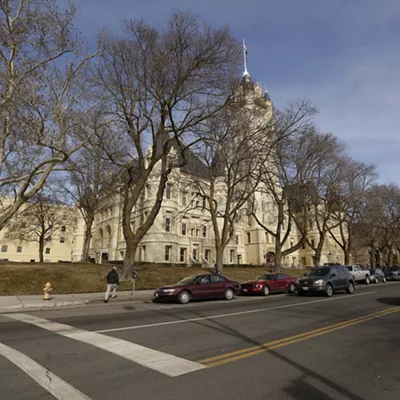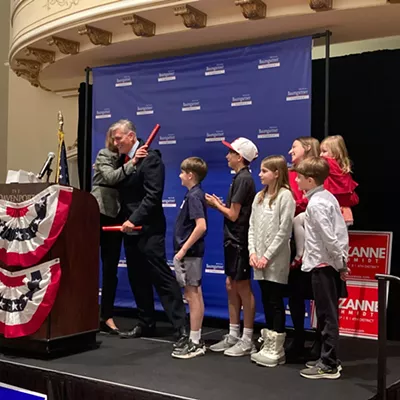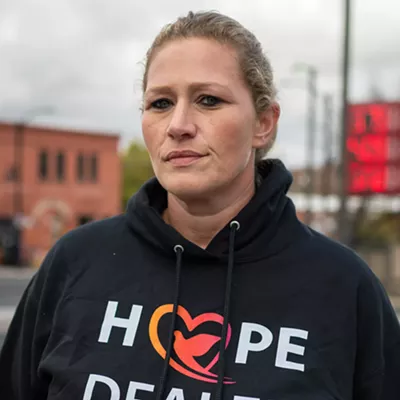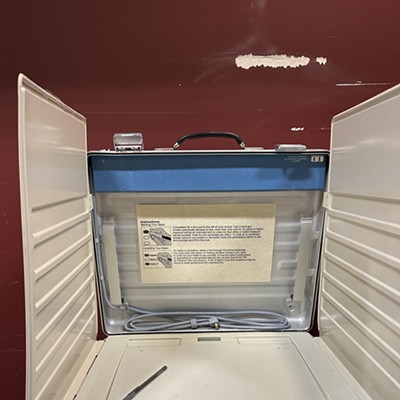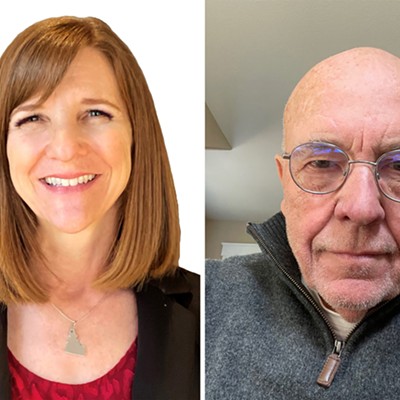Thursday, December 21, 2017
Eastern Washington group reaches compromise on plan to spread sewage on farm

Young Kwak photo
City of Spokane Wastewater Treatment Plant Maintenance Mechanic Kevin Johnbrow drives a tractor to spread biosolids, produced by the treatment plant, on a field at Carstens Family Farm in Reardan, Wash., Friday, Sept. 15, 2017.
Neighbors who didn't want "sewage sludge" to be applied on land above the canyon where they live north of Davenport are celebrating after their neighbor, a farmer, agreed not to use biosolids in that area.
Earlier this year, a group of Mill Canyon residents created the informal committee "Protect Mill Canyon Watershed" to get word out about their concerns over the safety of biosolids, the stuff that's left after wastewater is treated, which can be used to add nutrients to crop soils.
The move followed an application by a Western Washington company called Fire Mountain Farms, which wanted to apply biosolids on fields owned by their neighbor, farmer Garry Rosman. Many of the neighbors spoke out against the plan during a hearing last fall, and formed the opposition group this spring when it looked like the Department of Ecology might approve the plan.
Biosolids include not only human waste, but also other sewage sludge that makes it into municipal sewer systems from homes, businesses and industrial users. The material is typically treated with heat at wastewater treatment plants, where most of the water is removed, and then the resulting dirt-like substance is tested to meet federal and state regulations before it can be spread on farmland.
While regulations require testing for nine metals and for some pathogens, members of Protect Mill Canyon Watershed, some of whom are organic gardeners and farmers, were largely concerned about all the things that aren't tested for, namely: chemicals found in medications, household products, and industrial uses.
They worried that with wind and erosion, and the possibility of flooding, which has happened in the canyon in recent years, whatever unknowns might be in the material could wind up in their drinking water and the soil where they grow food.
After asking Ecology not to approve the permit, and threatening to challenge the approval if granted, the group wound up sitting down with Rosman to negotiate.
The result was a compromise, with Ecology recently approving an amended permit request by Fire Mountain Farms that reduced the number of acres where biosolids could be spread as necessary, and ensuring that rather than applying the material half a mile to a mile away, the closest site is five miles from the canyon, the group announced in a written statement this week.
“We refused to just lie down and accept this threat to our beautiful canyon, its air and water," landowner Morton Alexander said in a written statement this week. "We are grateful for support from the larger community, regional and statewide, that brought credibility to our fight. Hopefully, our success inspires resistance by others in similar struggles.”
Tags: News , biosolids , sewage sludge , crop , harvest , washington state , rosman farms , mill canyon , fertilizer , chemicals , Image



